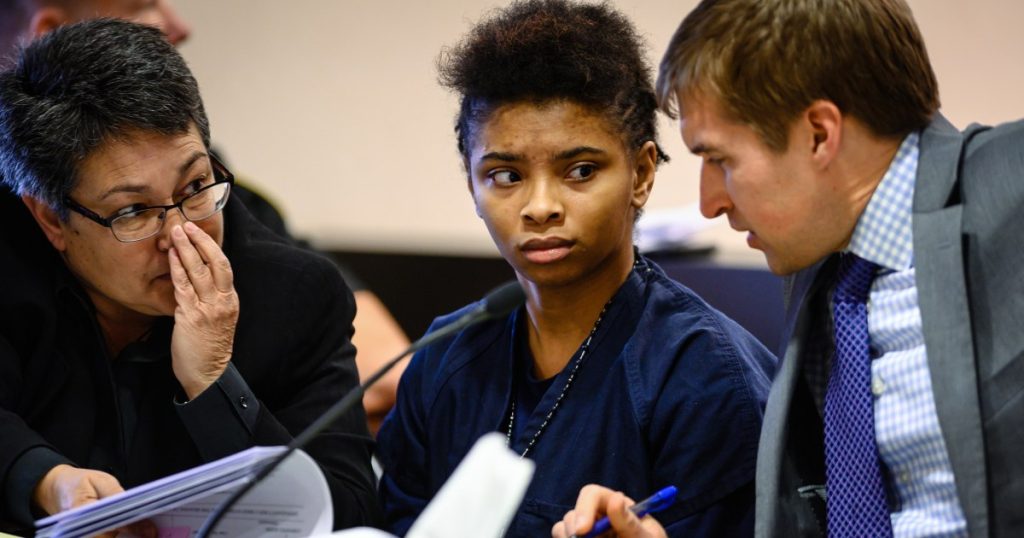Chrystul Kizer, a 24-year-old woman, was sentenced to 11 years in state prison after pleading guilty to second-degree reckless homicide in the killing of a man she said trafficked her as a teenager. Kizer was initially charged with first-degree intentional homicide for the 2018 killing of Randall Volar III before setting his body on fire. She entered a guilty plea for reckless homicide in May, ensuring she would not have to go to trial and avoid the risk of a potential life sentence. Kizer was 17 years old at the time of the incident and argued that she was legally allowed to kill Volar because he was sexually trafficking her when she met him at 16 and had been sexually abused by him multiple times.
The prosecutor’s office had confirmed they were working on a case against Volar at the time of his death but also stated that Kizer did not indicate she was being trafficked at the time of the killing. According to Kizer, on the day of the incident, she went to Volar’s home with a gun given to her by her boyfriend for protection. After a drug was administered and they began to watch a movie, she alleged that Volar began touching her and when she refused to have sex, a fight ensued leading to her shooting him twice. She then set his body on fire and fled the scene in his car. Kenosha District Attorney Michael D. Graveley accused Kizer of premeditated murder, claiming she planned to steal Volar’s car, a BMW.
In a 2019 interview with the Washington Post, Kizer expressed that she was trying to change her life and did not want to engage in criminal activities anymore. Kizer had a legal victory in 2022 when the Wisconsin Supreme Court upheld her right to argue self-defense under a state law that permits victims of trafficking to have an “affirmative defense for any offense committed as a direct result” of being trafficked. In February, Kizer was released from prison on a $400,000 bond but fled the state, violating her bail conditions. She was later caught in Louisiana and returned to Wisconsin. After her sentencing, Graveley expressed relief that the case was finally closed without the uncertainty of a trial, as reported by WTMJ.
Kizer’s sentencing included 11 years of confinement followed by five years of supervised release. She is required to submit a DNA sample to authorities and attend a restitution hearing at a later date. The voicemail left for one of Kizer’s public defenders was not immediately returned. While Kizer pleaded guilty to avoid a trial and potential life sentence, the case has sparked discussions around issues of trafficking, self-defense, and the legal system’s handling of victims of abuse. Kizer’s story sheds light on the complexities of such cases and raises questions about the justice system’s response to individuals who have experienced exploitation and trauma. Despite the sentencing, Kizer’s case continues to spark debate and calls for reform in how the legal system addresses cases involving victims of trafficking and abuse.


